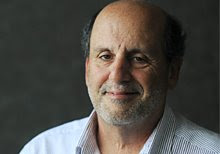The stories aren't hard to find. A relatively young, relatively healthy young man suffers a heart attack. The patient had lost his job not long before, or worked for a company that was shedding jobs. A recession-linked coronary event?
Stress - both emotional and psychological - has long been shown to have a correlation to cardiovascular disease. But the recession is threatening heart health in more indirect, insidious ways, says Dr. Tom Barringer, medical director at Presbyterian Novant Health and Wellness.
People often react in risky ways to emotional and financial strain, Barringer says. Their diet deteriorates. They drink more, get in more accidents, and stop taking medication.
Also, their bodies change. "There are nervous system changes such as heart rate variability," he says. "There are hormonal changes such as increased cortisol levels." The latter makes blood platelets stickier and more likely to aggregate, increasing risk of blockage.
Stress also has a profound chemical effect on the brain, which drives our vital signs, including heart rate.
But the risk Barringer is confronting more often is financial: Patients are worried about being able to afford treatments and critical medication. "We have more and more people saying, 'I can't stay on this anymore," he says.
Barringer recommends that males 45 and older and females 55 and older with at least one risk factor - high cholesterol, overweight, smoker, or family history of heart disease - get one of several specialized tests that can give doctors a look at arteries and potential risk for heart attacks.
Those tests, which include the coronary calcium score and other artery imaging, often run between $150-$300 - a small price for such critical information.
But, he says: "In the past number of years, I've never gotten the pushback on those tests that I've gotten now."
(Update, 5:28 p.m. - Barringer checks in with some proactive heart advice:
"Given the current financially stressful environment, it is more important than ever to use counter-stress measures daily, which include getting enough sleep, planning 30 minutes of some sort of enjoyable physical activity most days of the week (such as walking with a friend or spouse), paying attention to what you are eating and, lastly, taking some time each day for personal pleasures, whether is it reading or listening to music. All of these things have been shown to lessen some of the negative physiological changes we see in stress.")
Friday, March 13, 2009
The recession and your heart
Subscribe to:
Post Comments (Atom)





3 comments:
So what are the tests he recommends? More information, please.
A coronary calcium score looks at the build up of plaque in the arteries of your heart (sort of like a cat scan?). Most insurance companies consider it "experimental" and won't pay for it. Because of risk factors I had it done a couple years ago anyway. It came back very clear - the peace of mind made it worth the money - at least for me.
For many years the estimating an individual’s risk for a heart attack or stroke was based only on the number and severity of risk factors for atherosclerosis, such as blood pressure, cholesterol, smoking, etc. Now we can visualize atherosclerosis directly with simple non-invasive tests, quantify the extent of it, and improve our risk estimate immensely.
Currently we have 2 good tests which assess plaque, or risk for plaque, in arteries. They are different in several important ways, and further discussion which an expert on these tests may be needed to decide which is most appropriate for a specific individual. The first is a CT coronary calcium scan because it measures the amount of calcium in coronary arteries. Calcium may be an innocent by-stander in the plaque (unlike the cholesterol content), but it is conveniently present in almost all plaque beyond a certain age (convenient because we can easily see it with the CT), and therefore is a very good indirect measure of the total amount of plaque in the coronary arteries. Many studies have shown that the risk of a heart attack is strongly related to total amount of coronary plaque. Therefore individuals who have a high calcium score are at much greater risk of heart attack and should be treated more intensely with medications which have been shown to reduce that risk.
One of the drawbacks to the CT test is that plaque is less likely to be calcified in men before 45-50 and women before 55-60 years old. In such situations a better test is often a measure of thickening of the artery wall, which precedes calcified plaque in most cases, and is a predictor of subsequent plaque development and related disease. This test is performed with ultrasound and evaluates the carotid arteries in the neck. It is called a carotid IMT (intima-media thickening). Because arterial wall thickening often begins in early teenage years it is a suitable test in people at almost all ages, and generally preferable to the CT coronary calcium scan in people below the age of 40-45, especially when there is a family history of coronary heart disease or stroke.
Neither test is routinely covered by insurance companies, but neither is very expensive, generally less than $300 for the CT coronary calcium scan, and $150 for the carotid IMT.
Post a Comment